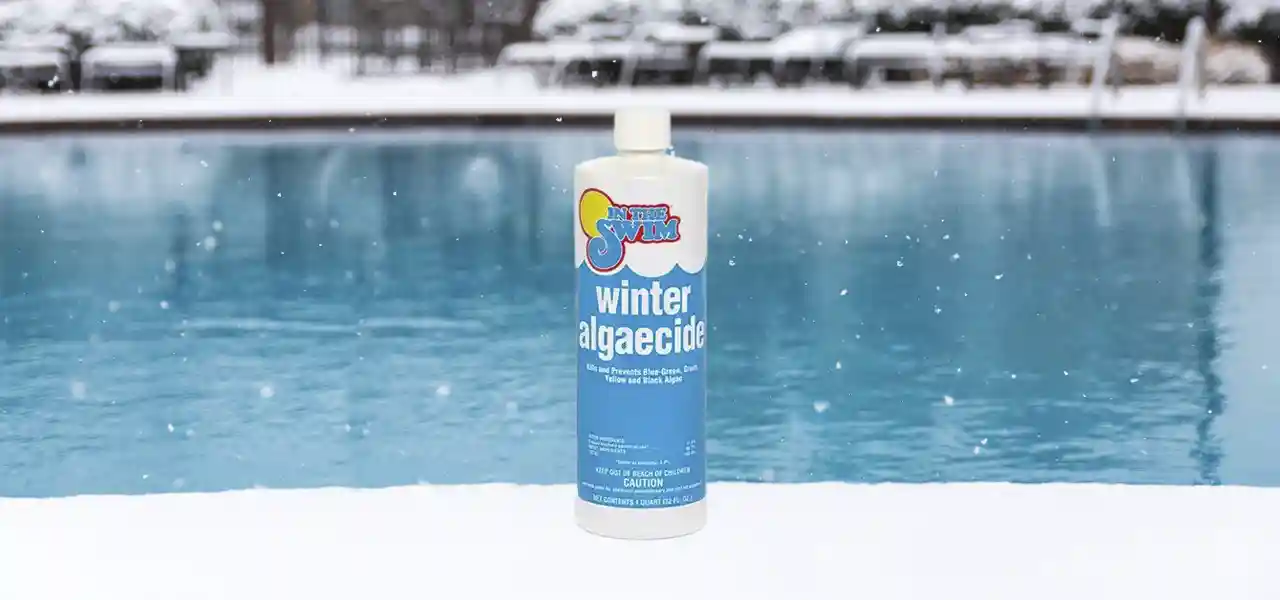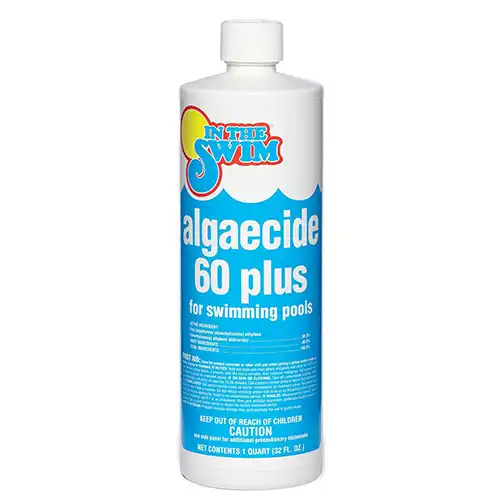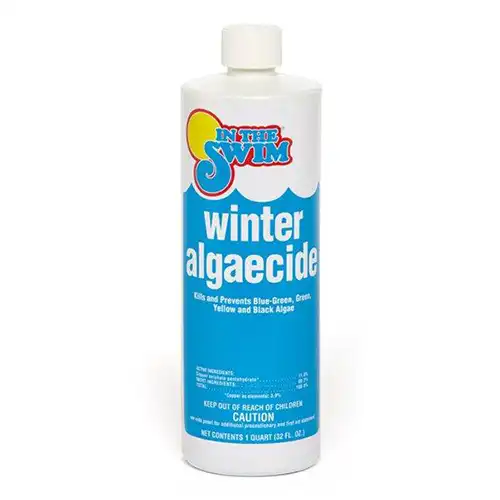FREE Standard Shipping On All Orders $100 or More!*

Winter Pool Algaecides
You may not think too much about which algaecide you put into your pool for the winter. If you use a winter chemical, and everything seems to work just fine, there is no cause for pause.
For others who may wonder which algaecide to use when closing the pool, this blog post is for you.
Winterizing Pool Algaecides

Algaecide 60 Plus
Likely the most commonly used winter algaecide, Poly 60, and its diluted cousin Poly 30, are stable in cold temperatures, and able to withstand fluctuations in pool pH levels better than other pool algaecides.
"Poly" means Polymer, which describes the chemical formulation of this particular algaecide. The number 60, or 30 - refers to the percentage of polymers; Poly 60 is a 60% solution.
When using a polymer algaecide for winter, it's important to add the algaecide separately from winter pool shock. I would recommend that you shock the pool 1 week prior to closing, and add your poly algaecide just before you cover the pool.
Winter Pool Algaecide

Our Winter Algaecide has been a customer favorite since we introduced it in 1984. It's a special blend we created specifically for pool closing. This polymer algaecide is buffered against degradation by high chlorine or erratic pH levels.
Added coagulants help to gather together suspended particles in your pool water, while the long polymer chains seek out and attach themselves to contaminants and algae. Once attached, winter algaecide destroys the algae cell by rupturing the cell membrane.
Long lasting, and treats up to 20,000 gallons. For best results, especially for mesh covered pools, add one bottle at closing, and another bottle when the outside air temperatures once again reach 60 degrees in the spring.
Other Winter Algae Treatments
No More Problems Algaecide
Algae control and clarifier in one, No Mor Problems is a proprietary blend of ingredients, which means that the contents are not specifically listed. However, we do know that Sodium Bromide is one of the active ingredients, which plays well with chlorine.